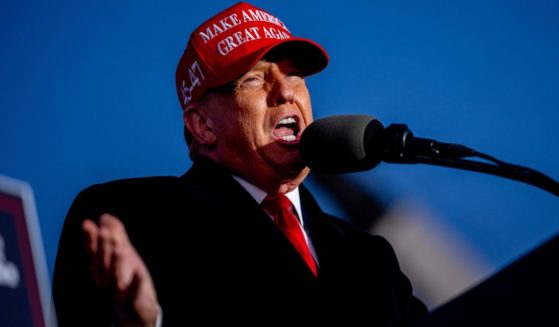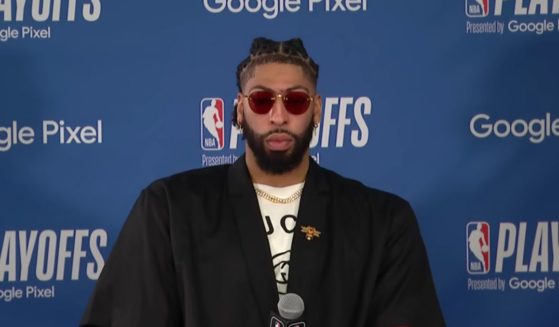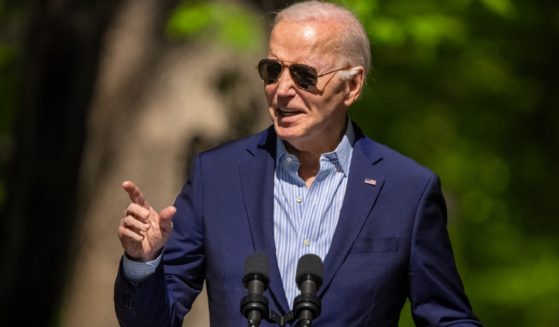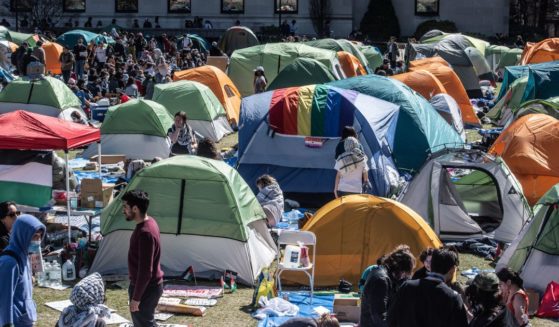Sciascia: This November, If You're Stupid Don't Vote
With little more than three weeks remaining until the 2020 presidential election on Nov. 3, the season for last-minute registration drives and snappy “get-out-the-vote” campaigns is officially upon us.
I certainly wish it were not. Better yet, I wish that it had not come at all this year.
Heck, I often wish with all my might that it had never become an established part of the American political discourse at all — and not simply because I am sick of being accosted on the street by supposedly nonpartisan registration teams or hate being subjected to uncomfortable celebrity video compilations begging my attention and reminding me of the importance of my vote.
Far from it, in fact, my wish is grounded in something much more foundational than any of that — the fact that, no matter what you may have heard about fake news and growing partisan vitriol, the single element that is most damaging to the republic is the mass registration of uneducated voters at the close of election season.
A record high 865,015 Americans were added to the rolls on National Voter Registration Day 2018, just six weeks before the year’s national midterm elections.
The result was a 12.1 percent increase from that of National Voter Registration Day 2016, but it had managed to more than quintuple that of the holiday’s 2014 iteration.
For Brian Miller, executive director of event organizer Nonprofit VOTE, that was something to celebrate.
“Democracy works best when more people participate and vote,” Miller told Time in light of the result. “That’s a shared value that brings everyone together.”
Of course, with no guarantees those registered will inform themselves beyond the opinion of their best friend, beloved family member or favorite celebrity before heading to the polls, there seems no reason to believe their involvement in the democratic process will actually better the nation.
I could ask every individual in the neighborhood what should be served for dinner at my next social gathering, but I would be far better served to ask only those who care enough to attend.
The issues at stake come election season are far more important and the wider population clearly far less engaged, with only 36 percent of Americans able to pass a generic U.S. citizenship test, according to the results of a 2018 Woodrow Wilson National Fellowship Foundation survey.
Voting ?️ is one of our greatest rights and responsibilities as Americans. That’s why we’re empowering young Angelenos with voter registration ? drives to help them make their voices heard. #StudentsVoteLA #NationalVoterRegistrationDay pic.twitter.com/UlHp8LiudH
— MayorOfLA (@MayorOfLA) September 25, 2018
And while it is easy to sympathize with those who, like Miller, declare the democratic process an American birthright and consider voting a civic duty, it is borderline unconscionable to encourage use of that birthright or performance of that duty in those who either do not care, are not informed or do not care enough to get informed.
As Founding Father John Adams wrote in his 1798 letter to the Massachusetts Militia, “Our Constitution was made only for a moral and religious People. It is wholly inadequate to the government of any other.”
Given their writings on the importance suffrage, it is hard to believe the Framers would have said any less with regard to an informed and civically engaged people.
At the Constitutional Convention in 1787, much discussion was had on the topic of voting rights and to whom they should be extended.
James Madison, who eventually drafted the U.S. Constitution, addressed at length the importance of extending the vote to as many Americans as possible without inviting the mob rule often associated with unchecked democracy.
“The right of suffrage is a fundamental Article in Republican Constitutions. The regulation of it is, at the same time, a task of peculiar delicacy,” Madison said, according to the Library of Congress.
“Allow the right [to vote] exclusively to property [owners], and the rights of persons may be oppressed,” he added.
“Extend it equally to all, and the rights of property [owners] … may be overruled by a majority without property.”
Despite his major disagreements with Alexander Hamilton on the issues of government elitism and the federal accumulation of power, even Anti-Federalist Thomas Jefferson appeared to agree with the Federalist premise that an uninformed majority would ultimately endanger the rights of the minority and, thus, the success of the republic.
“Every government degenerates when trusted to the rulers of the people alone,” Jefferson wrote in his Notes on the State of Virginia, which he published prior to the Constitution Convention. “The people themselves therefore are its only safe depositories. And to render even them safe, their minds must be improved to a certain degree.”
“If a nation expects to be ignorant and free, in a state of civilization, it expects what never was and never will be,” he later added in an 1816 letter to correspondent Charles Yancey.
It was this rationale that had, on numerous occasions, led the diplomat and U.S. president to push for the civic education of the enfranchised population.
Perhaps we should take his example this November, turning our efforts from voter registration to voter education — and, of course, ever-so-politely encouraging the uninformed to sit this one out.
Truth and Accuracy
We are committed to truth and accuracy in all of our journalism. Read our editorial standards.











